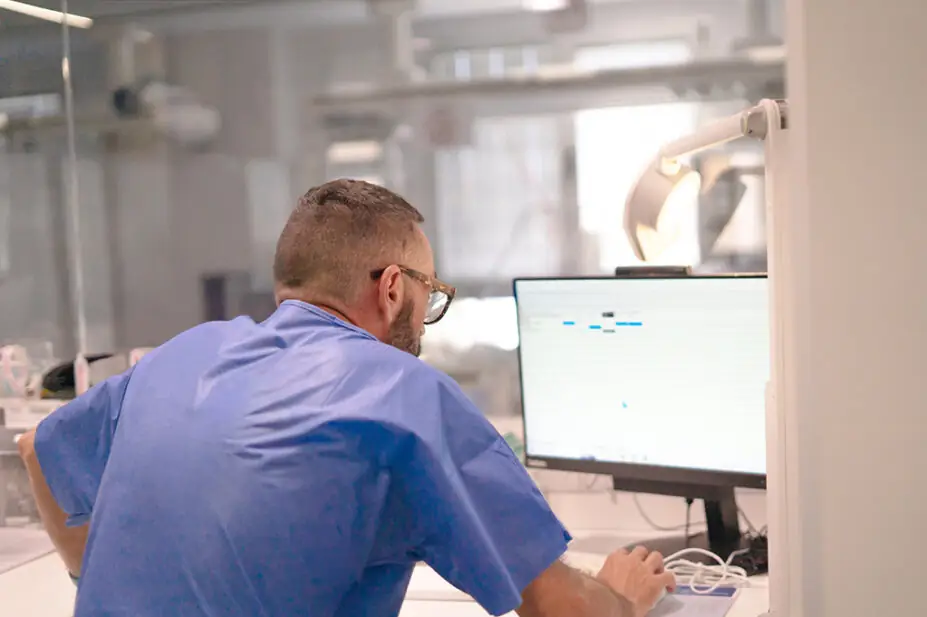
Shutterstock.com
Attendees of a roundtable hosted by the Royal Pharmaceutical Society (RPS) agreed that there is an “urgent need” to upskill the current workforce in digital and AI tools.
A report on the roundtable was published on 6 October 2025 following the Society’s publication of its policies on ‘Artificial intelligence in pharmacy’ and ‘Digital capabilities for the pharmacy workforce‘.
The roundtable, which was held in June 2025 at the Society’s London headquarters and streamed online, brought together representatives from across healthcare, including NHS England, Public Health Scotland, Health Education and Improvement Wales and the General Pharmaceutical Council (GPhC).
Attendees at the event discussed how digital and AI skills can support patient care, as well as how healthcare organisations at the event could work with others to advance the understanding and use of these tools across the sector.
One of the outcomes focused on the need to upskill the workforce, with a call for tailored training for different sectors, including community, primary care, hospital and portfolio pharmacists.
Attendees said that digital skills should be a core competency for everyone working in healthcare, but some noted that developments in digital technology move quickly and that it was “challenging” for education bodies to ensure curriculums and training are kept up to date.
Attendees also concluded that while technology was increasingly a part of clinical pathways and systems, the training needed to support its use was not always readily available.
A presentation from the British Pharmaceutical Students’ Association during the roundtable noted that pharmacy students want to be “actively involved in implementing digital tools and believe training should include patient education, General Data Protection Regulation and information governance”.
Other suggestions raised were that more needed to be done to help regulators set up frameworks around the use of AI, and that the NHS App should expand to include links to social and community care.
The issue of digital inequality was also discussed, with a note that pharmacists need to be able to support patients who are not digitally literate.
Among the calls to action from the day were for the RPS to facilitate a series of “deep dive” events for stakeholders looking at various aspects of digital capabilities and AI, and for the development of an “education piece for pharmacists in the digital space”.
Darren Powell, chair of the RPS Digital Pharmacy Expert Advisory Group, who spoke at the event, said: “Pharmacy professionals should have education and training on digital skills and the benefits and risks of AI systems in pharmacy practice. These must be introduced into undergraduate and foundation training programmes.
“We need to equip every member of the pharmacy workforce with the confidence and competence to critically assess and use digital tools to ensure safe, effective and equitable patient care for all.”
Commenting on the roundtable outcome, a spokesperson for the GPhC said: “We launched our consultation on standards for the initial education and training of pharmacy technicians [on 1 October 2025]. As highlighted in that consultation, our proposals include adding learning outcomes on keeping abreast of new technologies and using digital technologies to improve clinical outcomes.
“We recognise the role of digital innovation and technology in healthcare is growing. As such, we are exploring ways to build digital competencies into the IET standards.”


